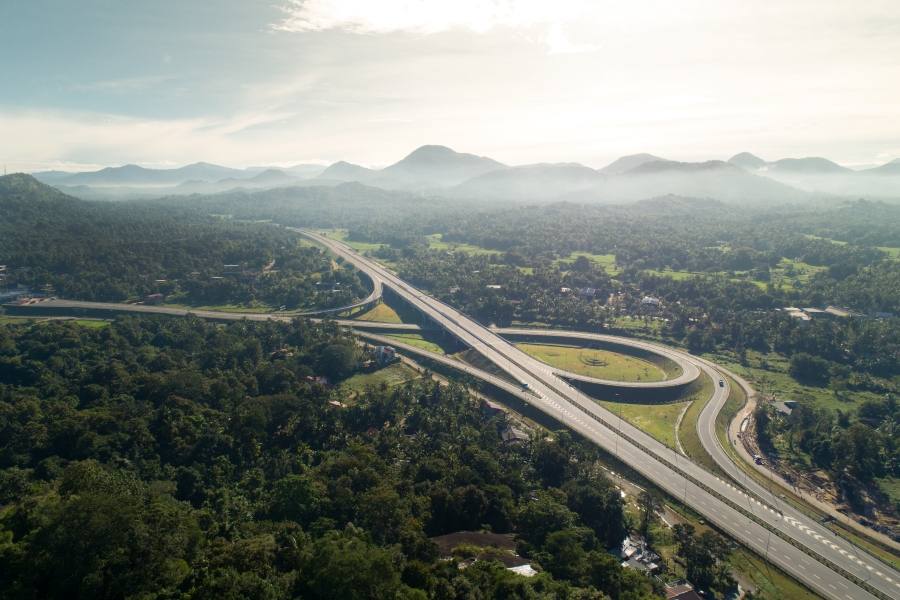
Violation of right to expression- Suppression of protestors
Description
In 2022, the Government of Sri Lanka responded to the civil uprising in Sri Lanka by giving excessive powers to the police and military to use force, by virtue of emergency regulations. Under the umbrella of these emergency regulations, many protests and hundreds of peaceful protestors were arrested and tortured via state- sponsored crackdowns throughout the months of March to July. The island-wide protests were sparked by the economic hardships which were a result of mismanagement of public funds, poor policy decisions, bad governance and widespread corruption. The dissent of citizens primarily challenged and called for the resignation of the then President Gotabaya Rajapaksa and for accountability from those responsible for the man-made governance disaster.
Anti-government protestors were arrested and detained under the Prevention of Terrorism Act (PTA)[i], amidst lot of pressure from civil society and legal practitioners to amend its draconian provisions[ii]. Under the International Covenant on Civil and Political Rights (ICCPR) to which Sri Lanka is a state party, the use of force to restrict human liberties and rights are both unnecessary and inappropriate. Accordingly, the State is thus obligated to protect, facilitate and promote the rights to freedom of peaceful assembly and expression. However, in addition to the failure of the, several casualties and injuries of protestors were also reported in its wake[iii].
Many attempts were also made to obtain court orders and to impose ‘police curfew’ to lawfully retrain protests from taking place[iv].
The State suppression on protests was continued by the incumbent government following the resignation of the then President. The Divisional Crimes Investigation Unit of Kelaniya arrested the Convener of the Inter-University Students’ Federation, Wasantha Mudalige and two others during a protest in August. A 90-day Detention Order signed by President Ranil Wickremesinghe in his capacity as the Minister of Defense, was issued against them and were detained accordingly under the Prevention of Terrorism Act[v].
What is the corruption
- Abuse of power
- Misuse of power to abuse laws such as counterterrorism legislation
- Biased media reporting by State media platforms
What has been done
A majority of protesters were released on bail and several parties filed Fundamental Rights petitions challenging the arrest and detention of peaceful protesters.
TISL issued a press statement condemning the arrests and oppression of citizens who raised their voices in peaceful protests to challenge those responsible for the country’s governance[vi].
The Bar Association of Sri Lanka (BASL) called for the immediate arrest of perpetrators behind the unprovoked attack on peaceful protestors, and the violence that followed. The Association also called for an inquiry into the failure of the police to investigate such violence[vii].
A Fundamental Rights petition challenging the arrest and detention of the Convener of the Inter-University Students’ Federation (IUSF) was filed in the Supreme Court of Sri Lanka by Attorney-at-Law Rivihara Pinnaduwa, inter alia seeking a ruling stating that the arrest and detention was illegal. The Human Rights Commission of Sri Lanka issued a notice urging the police not to extend the detention order issued against Convener of IUSF Wasantha Mudalige and Convenor of Inter-University Bhikkhu Federation (IUBF) Ven. Galwewa Siridhamma[viii].
Statements and joint statements urging the end of government crackdown on peaceful protestors were issued to the State by several global organisations such as Human Rights Watch, Amnesty International, World Organisation Against Torture (OMCT), and International Service for Human Rights[ix].
In August 2022, UN human rights experts condemned the extensive, prolonged and repeated use of state of emergency measures since April by Sri Lankan authorities to crackdown on peaceful protesters voicing their grievances[x].
Who are the victims
Citizens of Sri Lanka
What can be done
- Citizens, civil society and media to advocate for essential legal reforms such as the amendment of the PTA[xi]. Awareness and training to the police on the laws, arbitrary detention and use of force, duty to only execute lawful orders of superior officers and on misuse of power.
- Demanding compensation from the Government for the victims who faced casualties and injuries because of the protest crackdowns.
[i] https://www.newsfirst.lk/2022/08/19/sri-lanka-student-activists-detained-for-72-hours-police-want-to-use-terrorism-act-for-3-month-detention/
[ii] https://www.newsfirst.lk/2022/08/22/sri-lanka-protesters-must-not-be-detained-under-the-draconian-anti-terror-law-says-amnesty/
[iii] https://www.amnesty.org/en/latest/news/2022/07/sri-lanka-shameful-brutal-assault-on-peaceful-protestors-must-immediately-stop/ and https://www.fidh.org/en/region/asia/sri-lanka/sri-lanka-brutal-attack-against-peaceful-protesters-by-security
[iv] http://www.colombopage.com/archive_22B/Jul08_1657300329CH.php
[v] https://www.themorning.lk/articles/216384
[vi] https://www.tisrilanka.org/statement-on-ongoing-suppression-of-civic-activism/
[vii] https://economynext.com/sri-lanka-bar-association-calls-for-end-to-violence-immediate-arrest-of-instigators-94071/
[viii] https://www.hrcsl.lk/wp-content/uploads/2022/10/HRCSL-Press-Notice-on-26-10-2022-ii.pdf
[ix] https://www.hrw.org/news/2022/08/05/sri-lanka-end-government-crackdown-peaceful-protesters
[x] https://www.ohchr.org/en/press-releases/2022/08/sri-lanka-un-human-rights-experts-condemn-repeated-use-emergency-measures
[xi] https://www.cpalanka.org/commentary-on-prevention-of-terrorism-temporary-provisions-amendment-bill-2022/


